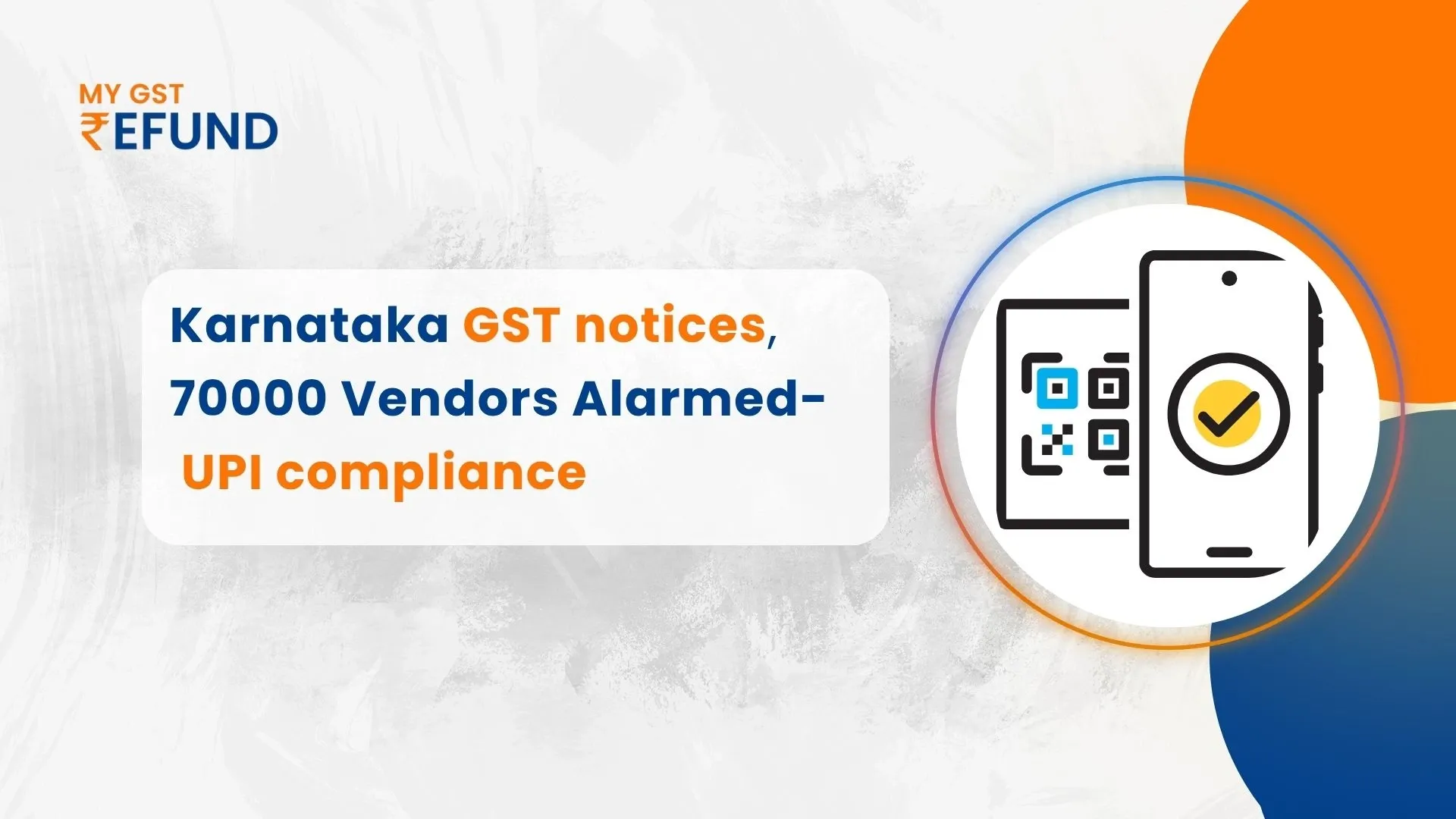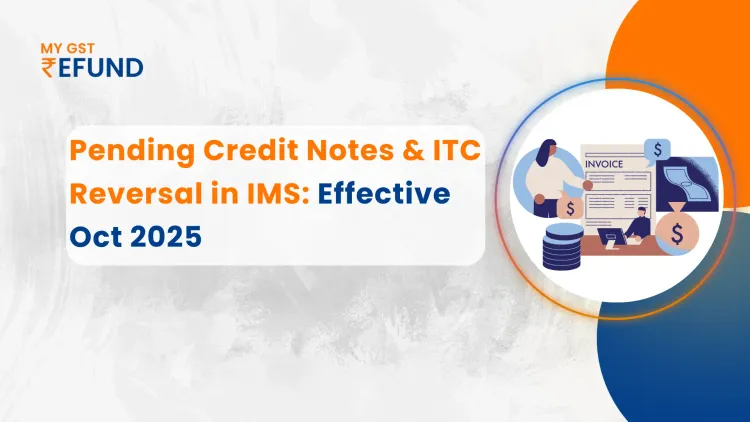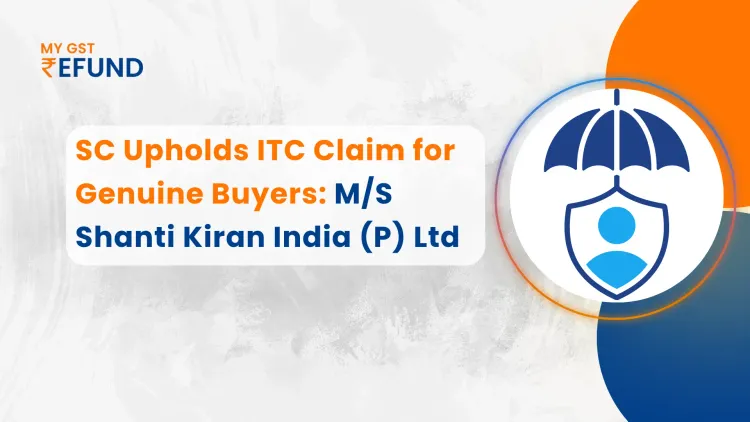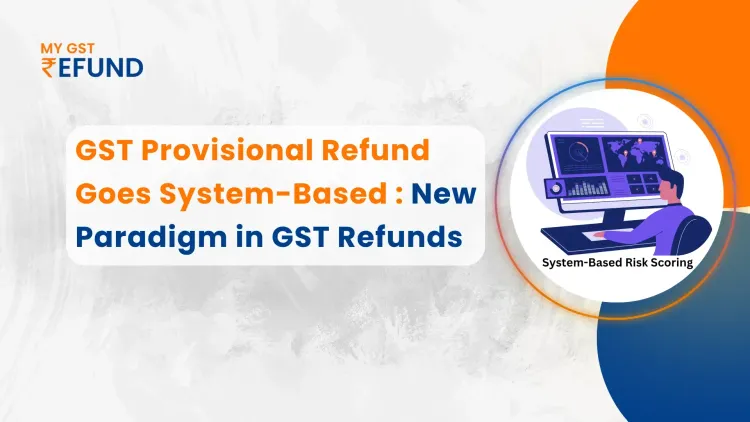Karnataka Vendors Alarmed Over Tightened GST Registration Rules
Bengaluru, July 31, 2025 - Thousands of small vendors across Karnataka are raising concerns after the state government intensified enforcement of GST registration norms, triggering a wave of fear and resistance in the informal sector.
7,000 Unregistered Vendors Notified
The Commercial Taxes Department has issued notices to around 7,000 unregistered vendors, including those dealing in exempted goods such as milk, vegetables, and unbranded food items. The notices are part of a broader effort to capture businesses that surpass the compulsory GST registration limits of 40 lakh rupees for Goods and 20 lakh rupees for services each year.
Local GST officers issued the notices under Section 63 of the GST Act, which states, "Where a taxable person fails to obtain registration even though liable to do so...and issue an assessment order within five years..."
The GST notices have triggered concern among vendors. A meat seller in Bengaluru’s Electronics City received a Rs 91-lakh notice despite claiming exemption and never having registered under GST.
As a response to them, Siddaramaiah, the Chief Minister, stated that he would withdraw notices issued to vendors to prove they deal exclusively in exempted goods. He added that any outstanding fees would be waived for vendors who register now and comply with the Act.
Chartered accountant Ashok Shetty mentioned that the assurance given by the Chief Minister does provide some temporary relief. However, since GST is administered by the center and enacted by the state, either vendors must register or provide clear proof of exemption.
UPI Transaction Data
One major shift that has caught vendors off guard is the use of UPI and digital transaction data to assess turnover. Authorities moved swiftly to clarify the issue and stated that UPI data from previous years had already been logged. The use of this information is now being reciprocated to measure actual turnovers regardless of the existing payment methods that are employed.
Meera Suresh Pandit, Joint Commissioner of Commercial Taxes, Mangaluru Division, said, Opting out of UPI now will not make any difference. The amount of compliance is turnover-based and not based on the mode of transaction. The businesses that exceed the limit must be registered.”
She also noted that the anticipated rate of 18% GST, which is putting many sellers in fear, can be reduced depending on the document verification. The mechanism for evaluating the rate, depending on the type of business and accompanying documentation, will be provided.
Vendors Raise Operational & Documentation Concerns
In a highly publicized incident, Shankargouda Hadimani, a vegetable vendor from Haveri, received a GST notice of ₹29 lakh based on his UPI transactions totaling ₹1.6 crore over four years. Even though he has been running a small vegetable stall near the Municipal High School in Haveri since 2021, he said the sum reflected cumulative daily sales of exempt goods like fruits and vegetables. “I have been filing income tax returns, but I never registered for GST because I sell vegetables, which are not taxable,” he told the media. He also stated that officials had told him the notice would be withdrawn if he could prove his goods were exempt.
The event created a backlash across the entire state. Vendors in the KR Market, Mysuru, and Hubballi quit using UPI by putting up such signs as UPI not accepted, and protesting. Officials subsequently explained that one would be exempted on the condition that documentation would be provided, but the realities were already on the ground- policies should not only be clear but also have measures to build trust.
Vendors voice concerns as GST registration rules tighten in Karnataka
The vendor’s story became symbolic of the unintended consequences of tech-driven enforcement without sufficient awareness.
However, vendors like Raghu, owner of SLN Enterprises in Malleswaram, say the process is more complicated than it appears. “We’re not against registration,” he said. “But now we’ll need to maintain books of accounts, hire accountants, and bear extra compliance costs. The government doesn’t reimburse these costs.”
Raghu also raised concerns about unofficial hurdles. “They claim registration is free, but there will be complications. Without bribes, applications won’t be processed. Most officers demand an extra Rs 2,000 to Rs 5,000 before approving registration,” he alleged.
Another recurring issue involves vendors operating out of leased premises. According to Raghu, “If the business premises are on lease, they demand the landowners’ documents. But most owners are reluctant to share these.”
Experts recommend viewing GST compliance as a mandatory path and not a choice; every small business needs to have digital surveillance of transactions being enforced. These issues, like GST registration tools and refund trackers, are going to play a crucial role in allowing businesses to remain in compliance without having to undergo unreasonable levels of burden.
If you get a GST notice:
1. Don’t ignore it; it may lead to recovery.
2. Check if turnover exceeded the GST threshold.
3. Register if eligible.
4. Respond via Form GST REG-01 or the GST portal.
5. Seek professional help like Mygstrefund.
6. Use the Amnesty Scheme if possible.
How MyGSTRefund Assists Businesses with GST Registration
As Karnataka vendors are finding themselves subject to sudden GST notices, usually caused by the complications with exempt goods, UPI transaction reviews, and documentation failure, many small traders are struggling to stay compliant. To solve these issues, platforms like MyGSTRefund offer timely, vendor-friendly support. Their GST Registration Service ensures that even small sellers dealing in exempt goods avoid penalties by helping them:
- Determine if registration is needed using expert validation tools.
- Use the HSN Validator to classify goods correctly, which is important for exemption claims.
- Estimate eligible refunds through the easy-to-use Refund Calculator.
- Avoid processing delays with guided document submission and local expert support.
In the ever-increasing trend of digital enforcement, MyGSTRefund will be an important companion for the vendors who have to register, demonstrate exemption, or are trying to remain compliant without falling into procedural pitfalls. Maximize efficiency with financial support tools through the MyGSTrefund platform. Great financial assistance with our experts to get rid of these types of GST-related issues.
Recent Registration Case Law:
M/s. Shree Bholenath Enterprises v. State of Gujarat (2023):
The Gujarat High Court upheld the validity of issuing a GST notice to an unregistered entity conducting business transactions through UPI, emphasizing that formal registration of business is not a requirement for subjecting tax to the transaction.
The key takeaways
In Karnataka, over 7,000 small vendors, including milk and vegetable traders, have received stricter GST registration notices. Many of the upcoming lack digital skills to comply with the new UPI rules. Despite CM Siddaramaiah’s promise to withdraw notices and subsidize fees, vendors face unofficial charges, complex forms, and low awareness. Platforms like MyGSTrefund offer expert help for easy GST registration, bridging compliance gaps.
Related Posts








